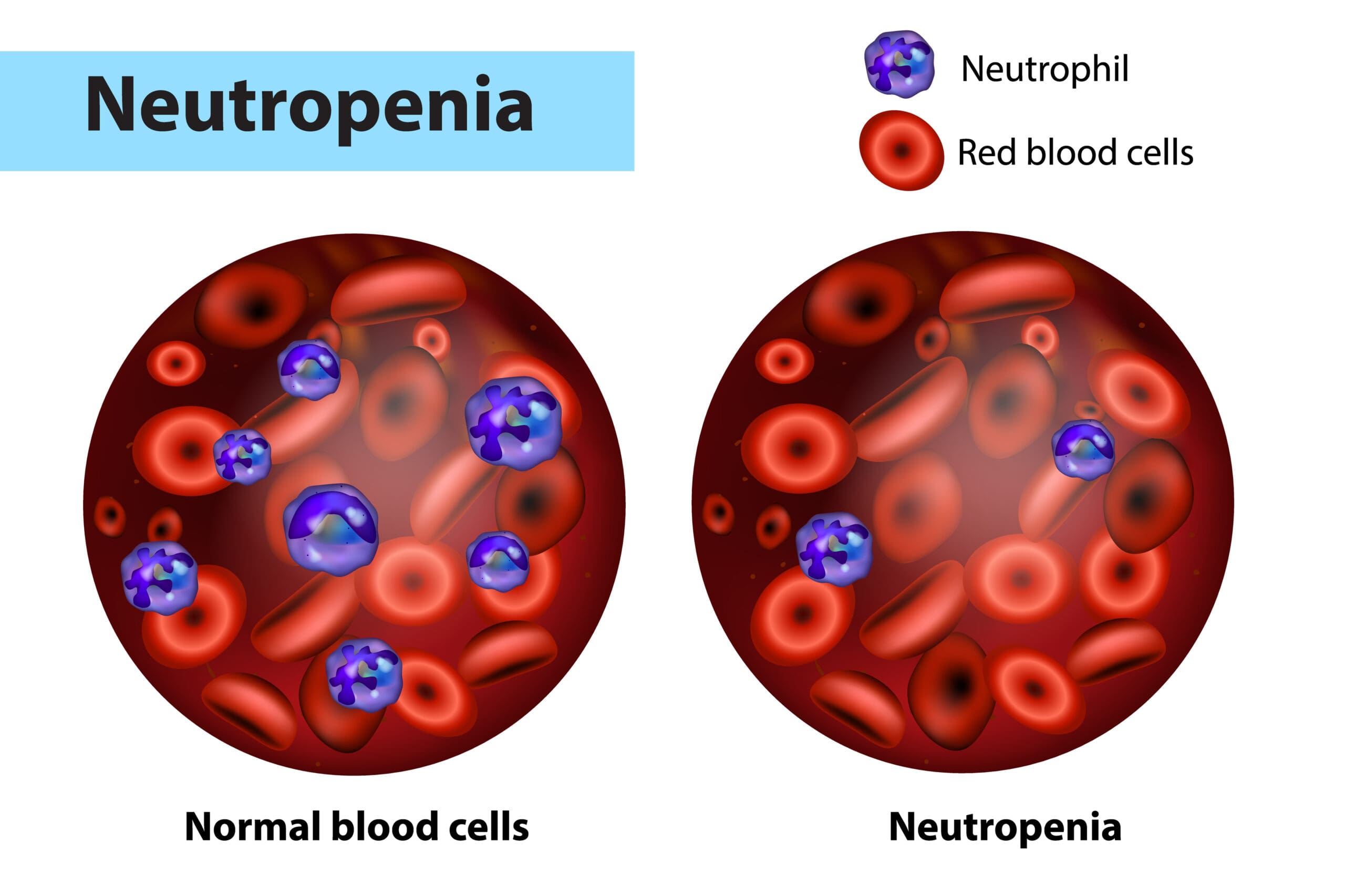What causes low white blood cells?
By naturopath Margaret Jasinska
Low white blood cells are a common finding on a blood test result. There are several possible explanations. If the deficiency is classed as mild, it is usually not investigated further. It is always best to get as much information as possible about your blood test results and find out how you can improve your health.
Having low white blood cells can compromise your immune system, making it much harder for your body to fight infections. It is not uncommon to see a patient whose blood count shows low numbers of white blood cells and they may have had this for years. They have often seen a blood specialist known as a haematologist and no specific cause is found.
Risks of low white blood cells include repeated infections. When lymphocytes are very low this may cause recurrent fungal, viral or parasitic infections. You may also experience chronic infections that do not go away, or mouth ulcers that do not heal.
The two most important types of white blood cells for fighting infections are neutrophils and lymphocytes.
- The condition of low neutrophils is known as neutropenia
- The condition of low lymphocytes is known as lymphocytopenia
Possible causes of low white blood cells include:
- Poor production of neutrophils or lymphocytes in the bone marrow
- Destruction of neutrophils and lymphocytes outside the bone marrow
- Capture of white blood cells by an enlarged spleen
- Infections such as Lyme disease, HIV, hepatitis, Epstein Barr virus, cytomegalovirus, tuberculosis or fungal infections
- Some medications
- Chemotherapy or radiation therapy for cancer
- Exposure to toxic chemicals
- Heavy metal toxicity, particularly with arsenic or mercury
- Autoimmune disease, particularly systemic lupus erythematosus
- Cancer such as Hodgkin’s lymphoma
- Blood disorders
- Deficiencies of vitamin B12, folate, zinc or copper
The following investigations may need to be performed:
Complete blood count with differential and flow cytometry which measures the levels of the different types of lymphocytes, including T cells, B cells and natural killer cells
Bone marrow biopsy to see if the bone marrow is producing enough white blood cells
In all cases a physical examination will be done to exclude serious underlying causes such as enlarged lymph nodes or an enlarged spleen or signs of infection.
Blood tests to measure Anti-Neutrophil-Cytoplasmic Antibodies (ANCA) may be worthwhile as high levels are associated with autoimmune neutropenia. This is where your immune system produces antibodies that attack and destroy your own neutrophils. It can occur in people with autoimmune disease or a family history of autoimmune disease.

Tips for those with low white blood cells
- Wash your hands frequently with hot water and soap.
- Practise good oral hygiene to avoid gum infections and see your dentist regularly for check ups.
- Check with your doctor if any of the medications you are taking could be causing your low white blood cells.
- Try to get sufficient deep sleep. Lack of sleep and stress are big triggers of infections and your body won’t be able to fight them as well if your white blood cells are low.
- Check your blood vitamin D levels. You want them to be at the higher limit of normal and not just average.
- Improve your liver and spleen by eating plenty of vegetables and salads.
- Use natural antibiotic herbs and foods to clear up hidden infections – these include garlic, radish, onions, chives, and rocket, and the essential oils of clove, oregano and thyme.
- Ask your doctor for a blood test for vitamin B12, folate, zinc and copper.
Be on the lookout for signs of infection such as fever, sweating, shortness of breath, diarrhoea or redness, swelling, heat and pain in any part of your body. Other signs to look for are painful or frequent urination or headaches. These symptoms can signal infection which must be treated early.
Gut health is important in all chronic health problems including low white blood cells. If you have a leaky gut or the wrong type of gut bacteria this could worsen any inflammatory problem that is causing the low white blood cells. If you have a family history of autoimmune disease this is significant, and you may need to avoid gluten and dairy products in your diet. It will take 6 to 12 months to see the benefits of a gluten and dairy free diet. If you have a leaky gut, I recommend the Ultimate Gut Health powder.
Make sure your body is not deficient in iron as you do not want low red blood cells as well as low white blood cells because that worsens fatigue.
Make sure your vitamin D levels are optimal because vitamin D helps to regulate the immune system and reduce infections.
In many cases of low white blood cells there are no symptoms or signs and the patient feels well. They only discover that they have low white blood cells on a routine check-up with their doctor. In most cases the patient lives normally with this problem for their natural life span. It is important to have a 6 monthly blood count if you have low white blood cells to monitor any deterioration.









Leave A Comment